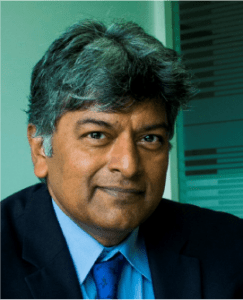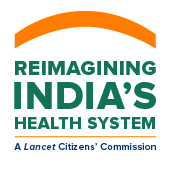In Conversation: Vijay Chandru, Professor, Interdisciplinary Research, Indian Institute of Science
January 14, 2022

I trained in systems theory and decision sciences and was a professor for over two decades in engineering and computer science at Purdue University and Indian Institute of Science (IISc) in Bangalore. I transitioned into computational biology and was an entrepreneur for over a decade building an early technology company in personalized and precision medicine solutions for oncology and rare or orphan disease patients in India. In 2016, I returned to the faculty at IISc in interdisciplinary research with a focus on digital health and its implications in modern health systems. IISc has recently announced a plan for launching health systems programs with a medical school and hospital. At IISc, we also have a technology innovation hub called ARTPark under the national mission at DST, which has a strong translational charter in health data, medical devices and digital population health innovations.
I was invited to join as a commissioner exactly a year back with a request to play an active role in the technology workstream which has been my focus since then. Digital health has already been a major focus in the national health roadmaps as well as within the commission with some of the commissioners and research fellows who have been pioneers in conceiving the India health stack and have helped with the architecture and development of the infrastructure that now goes by ABDM (Ayushman Bharat Digital Mission). Building on this infrastructure, the technological advances in sensors, wearables and pervasive/point-of-care diagnostics could lead to exciting new paradigms of precision medicine at population scale. Another research area that excites me is the use of data science in preparedness for public health disasters such as epidemics which would build on the emerging realization that we need to pay attention to better data archival methods.
The national exchequer’s miniscule budget allocations for public health have been a source of great inequity in access to healthcare in the country. Healthcare should be recognized as a fundamental right of all citizens – this is a great lacuna in our constitution. The misalignments of stakeholders is perhaps the next in the major challenges. At our population scale and health infrastructure, we have to give a major focus to preventive care and early detection. Through the pharmacological lens, the pandemic has shown us that vaccines can be developed at extraordinary speed now with modern tools and can prove effective in addressing some major public health challenges. Through the lens of traditional knowledge systems, we also know that there are extraordinary opportunities to address wellness and preventive care through even use of “food as medicine” as a paradigm. We need to build an evidence base for this to be taken forward and that requires outlays for traditional healing clinical research. The actual outlays in spending towards preventive health versus acute care is completely inverted today.
I do hope that the report that the commission presents to the nation is a practicable roadmap of reimagined health journeys that can lead the health system towards an equilibrium of equitable access to health care. But that is really just a beginning. It is always good to go back to Gandhiji’s talisman “Recall the face of the poorest and the weakest man [woman] whom you may have seen, and ask yourself, if the step you contemplate is going to be of any use to him [her].” To me that face is of a young child suffering from a rare or orphan disease – primary immuno-deficiencies, a lysosomal storage disorder, hemoglobinopathies or muscular dystrophies and asking the question does universal health care lead us to “No Disease Orphan by 2030”. This should have been SDG #18 but is not and we need to also hope to address some unsustainable development goals to feel satisfied that we have universal health care.
